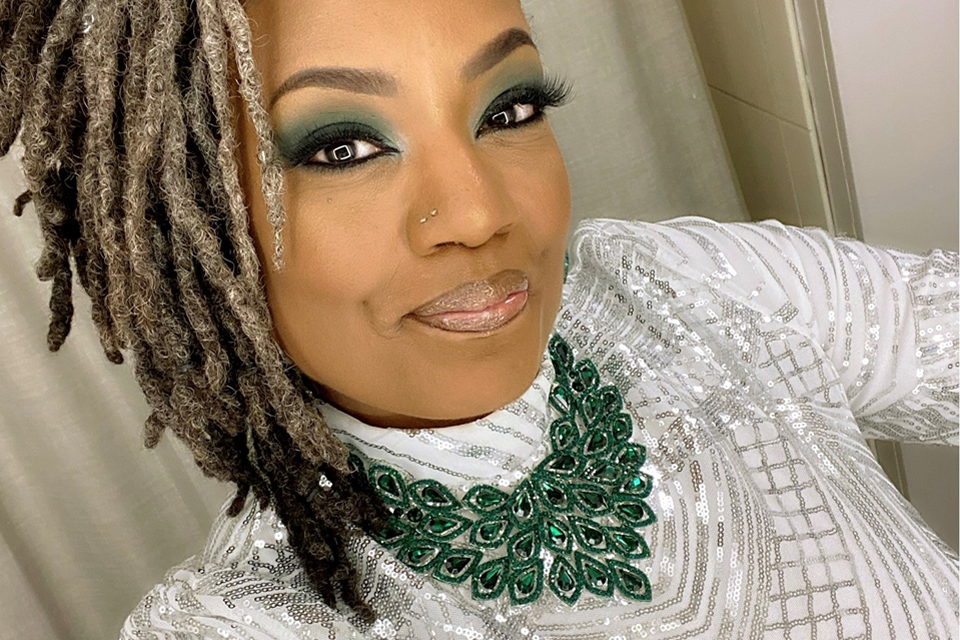The Well Project interviews Michelle Anderson, Community Advisory Board member and A Girl Like Me blogger, for our "Spotlight: Women Making a Difference" series.
How did you get your start in HIV advocacy? Are you particularly passionate about a specific topic or demographic?
In 2007, I entered into supportive housing after moving back to Texas in 2006. I met a resident there by the name of Isaac Henry (God rest his soul), who was a member of the Campaign to End AIDS Chapter in Dallas. He asked if I want to help end AIDS. That's where it began, in spite of never mentioning publicly that I was living with HIV. Today, I am particularly passionate about HIV and reproductive justice and how oppression plays out for Black women. I think it's important to shift how we have conversations about HIV and access especially when we are specifically talking about Black women because access is not equitable.
Do you think women living with HIV face unique challenges?
Black Women living with HIV face unique challenges when it comes to accessing healthcare due to systemic inequities, residential segregation, and social and economic marginalization. These systems make it difficult to access healthcare, including mental health treatment and reproductive health care, such as birthing options and abortion access.
Do you work to address those challenges through your work?
I utilize the reproductive justice framework to address racial inequities within Black communities to shift conversations beyond "wear a condom, get tested, and use PreP." It is important that we begin to have real conversations about the ways that racism shows up in Black communities and creates challenges and barriers that both impede the ability of Black women to access resources to take care of themselves and their families and shame them for doing so. Until we address the racial disparities and dismantle the systems that create them for Black women, HIV will continue to disproportionately impact them.
What advice would you offer a woman who recently learned that she has HIV?
Take ownership of your diagnosis. It's imperative that we take control of our own destiny and not allow society to continue to create false narratives about an HIV diagnosis. You have an opportunity to rewrite your story and create a happy ending. HIV is not the end of life...it's the beginning!
What advice would you offer a woman who wants to get started in HIV advocacy? Any specific guidance about getting ready to publicly share her HIV status for the first time?
First things first... GO TO THERAPY!!!! Deal with your own self-created stigma around your diagnosis cuz you are gonna hear your story and if you haven't dealt with your feelings about your HIV diagnosis, you will be of no help to anyone.
Can you describe an experience in your advocacy or personal life of which you are particularly proud (doesn't have to be HIV related)?
There are two experiences in advocacy and my personal life that brings me joy. Being crowned 2011 Ms. Plus America was one of my proudest moments. In that moment I realized that I can be whatever I choose and no one can take that away from me, not even HIV. My second would be the impact my experiences have had on my family. Since my family didn't know much about HIV, I often found myself being harmed by the stigma associated with HIV. It wasn't until I got educated on HIV that they not only began to come to terms with my diagnosis but supported my advocacy during the process. Being able to see my family grow and talk candidly about my experiences that led to an HIV diagnosis has allowed me to heal and grow into leadership beyond my expectations. Now my grandchildren are growing up to advocate for social injustice that they see in their own lives.
How did you learn about The Well Project?
In 2011, I heard about The Well Project through the beautiful and phenomenal Maria Mejia. I never knew a network like this existed that connected you to resources that are science-based, culturally competent and provided an outlet to share your experiences living with HIV through blogging.
What impact has The Well Project had on you?
The Well Project has been beneficial because it has been another resource I can go to to find up-to-date information on the science around HIV, new medications, and staying connected to other women living and thriving with HIV. I love the fellowship of women folk who help create a community of support and sisterhood. They are my tribe and I absolutely love them.
The Well Project has helped my advocacy in ways that I am grateful for. I am not good with spouting off data. I have never been good with numbers. But I can go on The Well Project's website and find numbers and language to help support my conversations around access and available treatment to folk living with HIV as well as negotiate conversations and HIV prevention.




